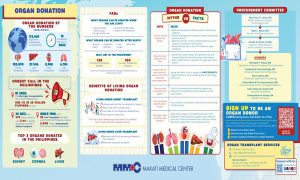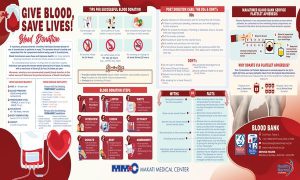
Mental health has become a relevant and more open topic in the modern times. Many have their own struggles with mental health but tend to keep these to themselves. However, doing so may lead to an increased level of stress and anxiety, causing more serious issues. One of these is the Imposter Syndrome.
A typical manifestation of the Imposter Syndrome is when an employee gets a promotion but still doubts their skills and questions their ability to fulfill the role. Another example is when a highly skilled employee refrains from taking risks because of their fear of failure.
Outside of work, Imposter Syndrome can also happen in sports when players feel unable to perform their best and constantly doubt themselves.
Imposter Syndrome may seem common, with up to 82% prevalence rate. However pervasive it may seem, anxiety tends to kick in with it, which can have detrimental psychological effects on the person. Not only will it affect the way they work, but it can also disrupt their daily lives.
The constant fear can be mentally taxing, resulting in mental fatigue and possibly depression.
What is Imposter Syndrome?
Imposter Syndrome is when a person is unable to believe that their success is deserved or has been achieved through legitimate means. It is an internal experience where they think they are not as competent as others make them out to be.
Another feeling revolves around the person thinking that they are a fraud—that one day, they may be caught. This tends to result in the person believing that they do not belong where they are and that the only reason they are in that situation is sheer luck.
This can affect anyone regardless of background, social status, skill level, or degree of expertise.
Types of Imposter Syndrome and How to Address Them
Imposter Syndrome can be seen in several aspects of life, with different types arising depending on the circumstances.
1. The Perfectionist
The perfectionist is a person who sets incredibly high expectations for themselves, making them difficult to accomplish. Thus, failure causes them to have severe anxiety.
An example of this type is when a musician is composing a song but cannot complete it because there is always something they think is not enough. The more they struggle, the more doubt occurs. A solution here is to consider mistakes as a part of the process, but it is also okay to celebrate the small victories and find contentment.
2. The Superhero
The superhero is a person obsessed with external validation. This person drowns themselves in their work not to work hard but to compete with their colleagues and come out on top. The work overload will harm their mental health and affect their relationships with other people. Workaholics are a prime example of this.
The best thing to do here is to slowly veer away from external validation and focus on nurturing internal validation, such as starting the day with feelings of being capable and optimistic. This builds confidence that results in a calm and collected mind.
3. The Natural Genius
The natural genius is simply what it means. These people believe that they need to be a “genius” in each aspect they tackle. Whether it is school, sports, or work, they think things should come easy for them. If they do not, they feel like a failure, which often results in them trying new things.
This is evident when an honor student struggles in one lesson of a subject. If they take a long time to master it, they feel ashamed. These people can move past this by accepting that they are a work in progress. It is essential to acknowledge and identify things they can improve instead of dwelling on the inability to be the master of this particular subject or skill.
4. The Expert
The expert is a person who has a difficult time determining success in their work. They want to know everything there is to know in their field, believing they will never know enough.
This kind of person can be seen continuously taking courses, training sessions, and certifications, believing that they do not know enough and need to compensate, which leads to “poor” results.
It is best to take things one step at a time instead of hoarding information. These people can also benefit from going to training-as-needed sessions and learning new things only when the need arises.
5. The Soloist
The soloist is a person who struggles to ask for help. If someone assisted them in accomplishing their task, they do not count that as their success and feel that they do not deserve recognition. What soloists need to do is acknowledge when help is necessary. There is no shame in asking for it.
Finding Power in Contentment
Many types of Imposter Syndrome revolve around the feeling of never being enough. Whether it is about work, school, or relationships, these people struggle with finding validation or success.
It is important to be self-aware and know when to seek professional help. Neuropsychologists can help people deal with severe Imposter Syndrome that has led or may lead to anxiety and depression.
Consult with any of Makati Medical Center’s Psychiatrists who specialize in Neuropsychiatry and provide patients with world-class facilities and healthcare services. Visit the MakatiMed website for more information.










